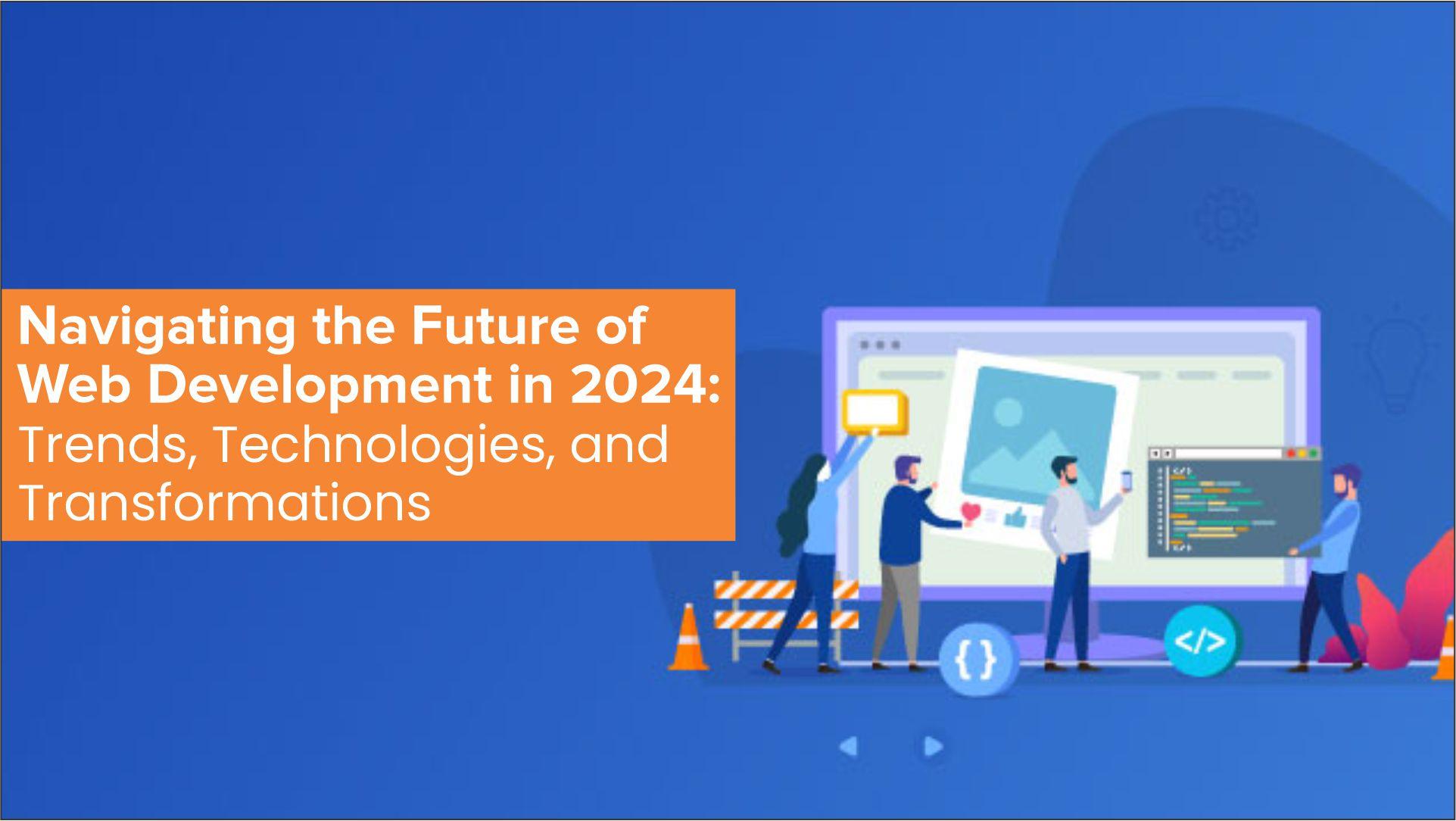News
Read the Montek Today
Explore the news article about technology,
Digital Marketing and global staffing.
Navigating the Future of Web Development in 2024: Trends and Technologies and Transformations

As we venture into 2024, the landscape of web development continues to evolve at a rapid pace, driven by technological advancements, changing user behaviors, and industry trends. From the proliferation of immersive web experiences to the rise of progressive web apps (PWAs) and headless architectures, web development in 2024 promises to be dynamic, innovative, and transformative. This comprehensive news piece explores the latest trends, technologies, and predictions shaping the world of web development in 2024, offering insights into how developers and businesses can stay ahead of the curve and leverage the power of the web to create compelling digital experiences.
1. The Era of Immersive Web Experiences
In 2024, we witness the emergence of immersive web experiences as a dominant trend in web development, fueled by advancements in web technologies such as WebXR, WebGL, and WebAssembly. From virtual reality (VR) and augmented reality (AR) to 3D graphics and interactive storytelling, developers leverage immersive web technologies to create engaging, interactive, and visually stunning digital experiences that blur the lines between the physical and digital worlds.
Moreover, immersive web experiences enable businesses to showcase products, tell brand stories, and engage customers in new and exciting ways, driving higher levels of user engagement, retention, and conversion. By embracing immersive web technologies, developers and businesses can unlock new opportunities for creativity, innovation, and differentiation in the competitive landscape of digital marketing and user experience design.
2. Progressive Web Apps (PWAs) and Enhanced User Experiences
In 2024, Progressive Web Apps (PWAs) continue to gain traction as a preferred approach to web development, offering users fast, reliable, and engaging experiences across devices and platforms. PWAs leverage modern web capabilities such as service workers, push notifications, and offline support to deliver app-like experiences that are seamless, responsive, and user-friendly.
Moreover, PWAs enable businesses to overcome the limitations of native apps, including installation friction, platform dependencies, and app store regulations, while maintaining the reach and accessibility of the web. By investing in PWAs, developers and businesses can enhance user experiences, drive higher engagement and conversions, and streamline development and maintenance efforts in an increasingly mobile-centric world.
3. Headless Architectures and Decoupled CMS
In 2024, headless architectures and decoupled content management systems (CMS) gain prominence as developers seek greater flexibility, scalability, and agility in building modern web applications and digital experiences. By decoupling the frontend presentation layer from the backend content management layer, developers can leverage APIs and microservices to deliver content-rich experiences across channels and devices.
Moreover, headless architectures enable developers to adopt best-of-breed technologies and tools for frontend development, such as React, Vue.js, and Angular, while leveraging robust CMS platforms for content authoring, management, and distribution. This decoupled approach empowers developers to iterate quickly, scale efficiently, and deliver personalized, omnichannel experiences that meet the evolving needs of users and businesses in the digital age.
4. AI-Powered Web Development Tools and Automation
In 2024, artificial intelligence (AI) and machine learning (ML) technologies play an increasingly significant role in web development, empowering developers with intelligent tools and automation capabilities to streamline workflows, optimize performance, and enhance productivity. AI-powered code editors, design assistants, and testing frameworks enable developers to write cleaner, more efficient code, identify and fix bugs, and optimize website performance with greater precision and efficiency.
Moreover, AI-driven content generation tools, chatbots, and personalization engines enable businesses to deliver tailored, contextually relevant experiences to users, driving higher engagement and conversion rates. By harnessing the power of AI and ML, developers and businesses can unlock new efficiencies, accelerate time-to-market, and deliver exceptional digital experiences that delight users and drive business outcomes.
5. Embracing Web Accessibility and Inclusive Design
In 2024, web accessibility and inclusive design take center stage in web development, as developers and businesses recognize the importance of creating digital experiences that are accessible to all users, regardless of ability or disability. From designing for keyboard navigation and screen reader compatibility to ensuring color contrast and text readability, developers prioritize accessibility considerations at every stage of the design and development process.
Moreover, AI-driven accessibility tools and plugins empower developers to automate accessibility testing, identify potential issues, and implement remediation strategies to ensure compliance with web accessibility standards and guidelines. By embracing web accessibility and inclusive design principles, developers and businesses can foster a more inclusive, equitable, and user-centric web experience for all users.
Conclusion
As we look ahead to 2024, the world of web development continues to evolve and innovate, driven by emerging technologies, changing user expectations, and industry trends. From immersive web experiences and progressive web apps to headless architectures and AI-powered development tools, developers and businesses have a wealth of opportunities to explore and leverage in creating compelling digital experiences that engage users, drive conversions, and differentiate brands in the competitive landscape of the web.
By staying abreast of the latest trends, embracing new technologies, and prioritizing user-centric design and accessibility, developers and businesses can position themselves for success in the ever-changing world of web development. As we navigate the opportunities and challenges of web development in 2024 and beyond, one thing remains clear: the web will continue to be a powerful platform for innovation, creativity, and connection in the digital age.


Date : 2024-05-21 | By : Montek | Category: web-develo